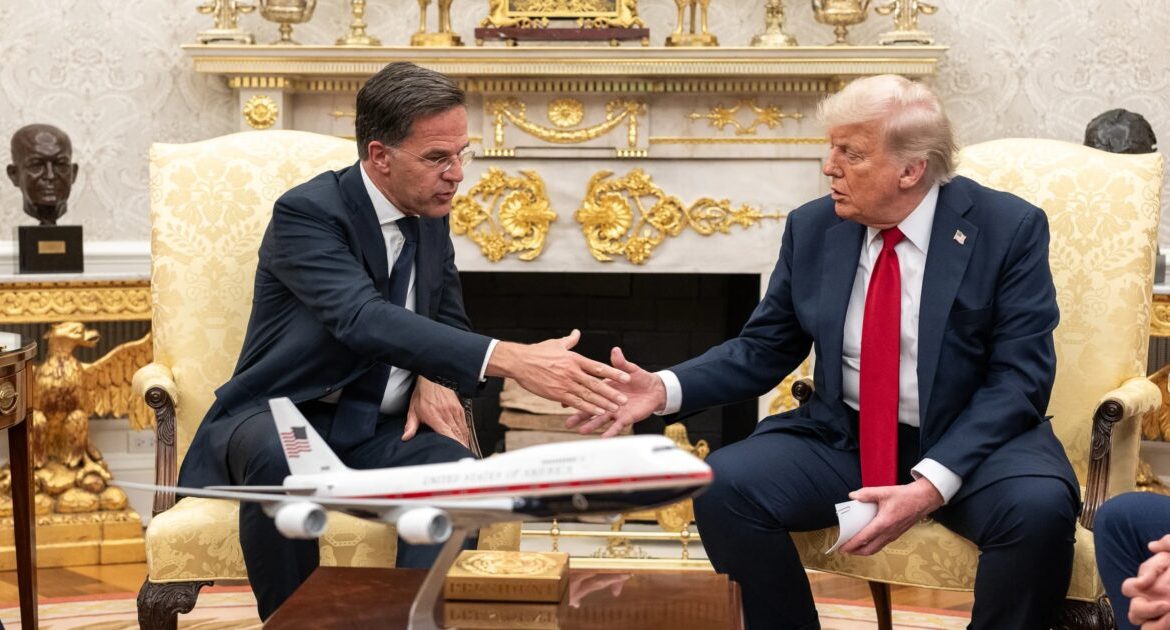

In both his first term and the first 200 days of his second, President Donald Trump has brokered more peace agreements than any other president in American history. He is widely recognized for ending conflicts that other administrations would not even attempt to address.
Anyone with a rational and unbiased mind, even political opponents, must admit that Trump has demonstrated exceptional peace-making ability.
He has been the most anti-war president in modern history, consistently using diplomacy and strategic negotiation to avoid prolonged conflict. By any fair standard, Trump deserves the Nobel Peace Prize.
In his first term, Trump achieved the Abraham Accords, a diplomatic breakthrough signed in 2020 that normalized relations between Israel and four Arab nations: the United Arab Emirates, Bahrain, Sudan, and Morocco. This ended decades of hostility and overcame a geopolitical stalemate that had existed since Israel’s founding in 1948.
Before this agreement, only Egypt in 1979 and Jordan in 1994 had formal peace with Israel. Trump tripled that number in just one year.
The Abraham Accords were more than symbolic. They created embassies, direct flights, and open trade. In 2022, trade between Israel and the UAE alone surpassed $2.5 billion, a 234% increase from pre-accord levels.
This growth created jobs, encouraged innovation, and inspired other nations to consider normalization.
Unlike past agreements that relied on fragile ceasefires, the Abraham Accords were grounded in mutual economic benefit and shared security goals.
Trump also accomplished what no other U.S. president had done—he met with North Korean leader Kim Jong-un and even stepped into North Korea. These talks lowered tensions on the Korean Peninsula, opened the door to communication, and signaled that diplomacy was possible with a regime long seen as untouchable.
In his second term, Trump’s pace of peace-making has only accelerated. Just this week, Armenia and Azerbaijan signed a formal U.S.-brokered peace treaty at the White House, ending a bloody territorial conflict that had claimed thousands of lives and displaced tens of thousands.
Trump brought together President Ilham Aliyev of Azerbaijan and Prime Minister Nikol Pashinyan of Armenia—leaders whose nations had been locked in hostility for decades—and secured a deal many believed was impossible.
Trump also prevented a potentially catastrophic war between India and Pakistan, two nuclear-armed nations whose history is marked by deadly clashes over the disputed Kashmir region.
In early 2025, tensions rose after cross-border incidents threatened to spiral into open conflict. Trump’s intervention included private talks with both Prime Minister Narendra Modi of India and Prime Minister Shehbaz Sharif of Pakistan.
His diplomacy led to a mutual agreement to step back from military escalation, reopen communication channels, and coordinate security to prevent further incidents.
By defusing a crisis between two nuclear powers, Trump helped avert a conflict that could have had devastating consequences for South Asia and the world.
His second term has also seen success in other regions. In July, Thailand and Cambodia reached a ceasefire following deadly border clashes that killed 36 people and displaced more than 260,000.
In June, Rwanda and the Democratic Republic of the Congo signed a U.S.-brokered peace agreement to end decades of violence, pledging respect for borders, joint security coordination, and an end to aggression.
Trump increased U.S. counterterrorism operations, eliminating dozens of high-level terrorists, including a senior ISIS attack planner in Somalia. And most recently, Russia signaled its willingness to end the war in Ukraine if granted control of its eastern territories.
While the outcome remains uncertain, the fact that such an offer was placed on the table is a testament to Trump’s ability to bring even the most entrenched conflicts toward negotiation.
This record is unmatched by any modern president. Trump has ended wars, prevented wars, and built lasting peace agreements across multiple continents.
Yet despite these achievements, the Nobel Committee is unlikely to award him the Peace Prize. Political bias has clouded its decisions in the past, honoring leaders whose records included expanded warfare and destabilization.
Whether or not the committee recognizes him, Trump’s work stands as proof that strong, decisive leadership can achieve real peace. History will remember him not as a president of endless wars, but as a president of unprecedented diplomacy.
The post Trump’s Peace Playbook: Why He Deserves The Nobel Peace Prize appeared first on The Gateway Pundit.

